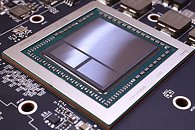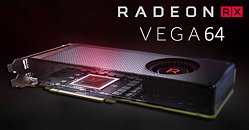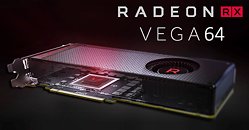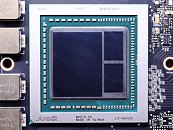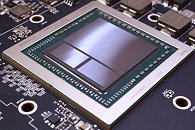Apr 3rd, 2025 15:46 EDT
change timezone
Latest GPU Drivers
New Forum Posts
- Help me pick a UPS (46)
- 4x16gb how are these? (7)
- Someone knowledable on memory voltages want to chime in? (also what is PMIC and should I be worried) (1)
- TPU's F@H Team (20416)
- Help me decide if I should buy the arc B580 (As a backup) (10)
- Microprose: Falcon 5.0 - Well under development- yeay (10)
- New posts added to last post (1)
- 5070 cards available below £550 in in the UK (9)
- Weird games on rtx 3070ti (0)
- TPU's Nostalgic Hardware Club (20162)
Popular Reviews
- DDR5 CUDIMM Explained & Benched - The New Memory Standard
- Sapphire Radeon RX 9070 XT Pulse Review
- SilverStone Lucid 04 Review
- PowerColor Radeon RX 9070 Hellhound Review
- Sapphire Radeon RX 9070 XT Nitro+ Review - Beating NVIDIA
- Pwnage Trinity CF Review
- Palit GeForce RTX 5070 GamingPro OC Review
- ASRock Phantom Gaming B850 Riptide Wi-Fi Review - Amazing Price/Performance
- AMD Ryzen 7 9800X3D Review - The Best Gaming Processor
- Samsung 9100 Pro 2 TB Review - The Best Gen 5 SSD
Controversial News Posts
- MSI Doesn't Plan Radeon RX 9000 Series GPUs, Skips AMD RDNA 4 Generation Entirely (146)
- Microsoft Introduces Copilot for Gaming (124)
- AMD Radeon RX 9070 XT Reportedly Outperforms RTX 5080 Through Undervolting (119)
- NVIDIA Reportedly Prepares GeForce RTX 5060 and RTX 5060 Ti Unveil Tomorrow (115)
- Over 200,000 Sold Radeon RX 9070 and RX 9070 XT GPUs? AMD Says No Number was Given (100)
- NVIDIA GeForce RTX 5050, RTX 5060, and RTX 5060 Ti Specifications Leak (96)
- Retailers Anticipate Increased Radeon RX 9070 Series Prices, After Initial Shipments of "MSRP" Models (90)
- China Develops Domestic EUV Tool, ASML Monopoly in Trouble (88)
News Posts matching #Advanced Semiconductor Engineering
Return to Keyword BrowsingIntel, AMD, Arm, and Others, Collaborate on UCIe (Universal Chiplet Interconnect Express)
Intel, along with Advanced Semiconductor Engineering Inc. (ASE), AMD, Arm, Google Cloud, Meta, Microsoft Corp., Qualcomm Inc., Samsung and Taiwan Semiconductor Manufacturing Co., have announced the establishment of an industry consortium to promote an open die-to-die interconnect standard called Universal Chiplet Interconnect Express (UCIe). Building on its work on the open Advanced Interface Bus (AIB), Intel developed the UCIe standard and donated it to the group of founding members as an open specification that defines the interconnect between chiplets within a package, enabling an open chiplet ecosystem and ubiquitous interconnect at the package level.
"Integrating multiple chiplets in a package to deliver product innovation across market segments is the future of the semiconductor industry and a pillar of Intel's IDM 2.0 strategy," said Sandra Rivera, executive vice president and general manager of the Datacenter and Artificial Intelligence Group at Intel. "Critical to this future is an open chiplet ecosystem with key industry partners working together under the UCIe Consortium toward a common goal of transforming the way the industry delivers new products and continues to deliver on the promise of Moore's Law."
"Integrating multiple chiplets in a package to deliver product innovation across market segments is the future of the semiconductor industry and a pillar of Intel's IDM 2.0 strategy," said Sandra Rivera, executive vice president and general manager of the Datacenter and Artificial Intelligence Group at Intel. "Critical to this future is an open chiplet ecosystem with key industry partners working together under the UCIe Consortium toward a common goal of transforming the way the industry delivers new products and continues to deliver on the promise of Moore's Law."

AMD To Change Suppliers for Vega 20 GPUs on 7nm, HBM2 Packaging for Vega 11
AMD's RX Vega supply has seen exceedingly limited quantities available since launch. This has been due to a number of reasons, though the two foremost that have been reported are: increased demand from cryptocurrency miners, who are looking towards maximizing their single node hashrate density through Vega's promising mining capabilities; and yield issues with AMD's Vega 10 HBM2 packaging partner, Advanced Semiconductor Engineering (ASE). It's expected that chip yield for Vega 10 is also lower per se, due to it having a 484 mm² die, which is more prone to defects than a smaller one, thus reducing the amount of fully-enabled GPUs.
AMD's production partner, GlobalFoundries, has historically been at the center of considerations on AMD's yield problems. That GlobalFoundries is seemingly doing a good job with Ryzen may not be much to say: those chips have incredibly small die sizes (192 mm²) for their number of cores. It seems that Global Foundries only hits problems with increased die sizes and complexity (which is, unfortunately for AMD, where it matters most).
AMD's production partner, GlobalFoundries, has historically been at the center of considerations on AMD's yield problems. That GlobalFoundries is seemingly doing a good job with Ryzen may not be much to say: those chips have incredibly small die sizes (192 mm²) for their number of cores. It seems that Global Foundries only hits problems with increased die sizes and complexity (which is, unfortunately for AMD, where it matters most).

AMD RX Vega Supply Issues to Persist At Least Until October - Digitimes
DigiTimes is reporting, through "sources from the upstream supply chain", that AMD's current shortage of RX Vega cards to distribute to the retail market will continue at least until October. The tech reporting site says that sources are pointing towards the package integration of HBM2 memory (from SK Hynix or Samsung Electronics) and the Vega GPU (manufactured on Global Foundries' 14 nm FinFet) as being at fault here, due to low yield rates for this packaging effort. However, some other sources point towards the issue being with the packaging process itself, done by Advanced Semiconductor Engineering (ASE) through use of SiP technology. Whichever one of these cases may be, it seems the problem lies with AMD's choice to use HBM2 on their Vega graphics architecture.
As a footnote to its story, DigiTimes is also reporting that according to industry sources, NVIDIA has, in light of RX Vega's performance, decided to postpone the launch of Volta-based GPUs towards the first quarter of 2018.
As a footnote to its story, DigiTimes is also reporting that according to industry sources, NVIDIA has, in light of RX Vega's performance, decided to postpone the launch of Volta-based GPUs towards the first quarter of 2018.
Apr 3rd, 2025 15:46 EDT
change timezone
Latest GPU Drivers
New Forum Posts
- Help me pick a UPS (46)
- 4x16gb how are these? (7)
- Someone knowledable on memory voltages want to chime in? (also what is PMIC and should I be worried) (1)
- TPU's F@H Team (20416)
- Help me decide if I should buy the arc B580 (As a backup) (10)
- Microprose: Falcon 5.0 - Well under development- yeay (10)
- New posts added to last post (1)
- 5070 cards available below £550 in in the UK (9)
- Weird games on rtx 3070ti (0)
- TPU's Nostalgic Hardware Club (20162)
Popular Reviews
- DDR5 CUDIMM Explained & Benched - The New Memory Standard
- Sapphire Radeon RX 9070 XT Pulse Review
- SilverStone Lucid 04 Review
- PowerColor Radeon RX 9070 Hellhound Review
- Sapphire Radeon RX 9070 XT Nitro+ Review - Beating NVIDIA
- Pwnage Trinity CF Review
- Palit GeForce RTX 5070 GamingPro OC Review
- ASRock Phantom Gaming B850 Riptide Wi-Fi Review - Amazing Price/Performance
- AMD Ryzen 7 9800X3D Review - The Best Gaming Processor
- Samsung 9100 Pro 2 TB Review - The Best Gen 5 SSD
Controversial News Posts
- MSI Doesn't Plan Radeon RX 9000 Series GPUs, Skips AMD RDNA 4 Generation Entirely (146)
- Microsoft Introduces Copilot for Gaming (124)
- AMD Radeon RX 9070 XT Reportedly Outperforms RTX 5080 Through Undervolting (119)
- NVIDIA Reportedly Prepares GeForce RTX 5060 and RTX 5060 Ti Unveil Tomorrow (115)
- Over 200,000 Sold Radeon RX 9070 and RX 9070 XT GPUs? AMD Says No Number was Given (100)
- NVIDIA GeForce RTX 5050, RTX 5060, and RTX 5060 Ti Specifications Leak (96)
- Retailers Anticipate Increased Radeon RX 9070 Series Prices, After Initial Shipments of "MSRP" Models (90)
- China Develops Domestic EUV Tool, ASML Monopoly in Trouble (88)



